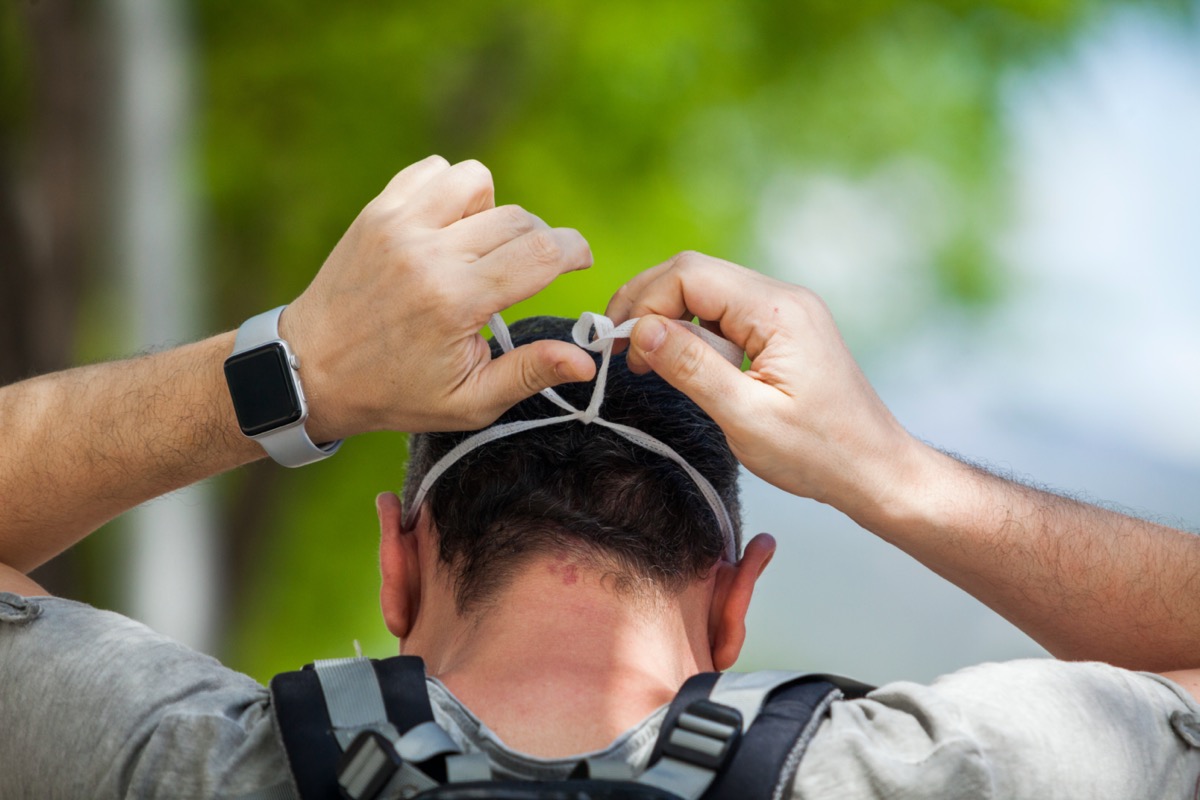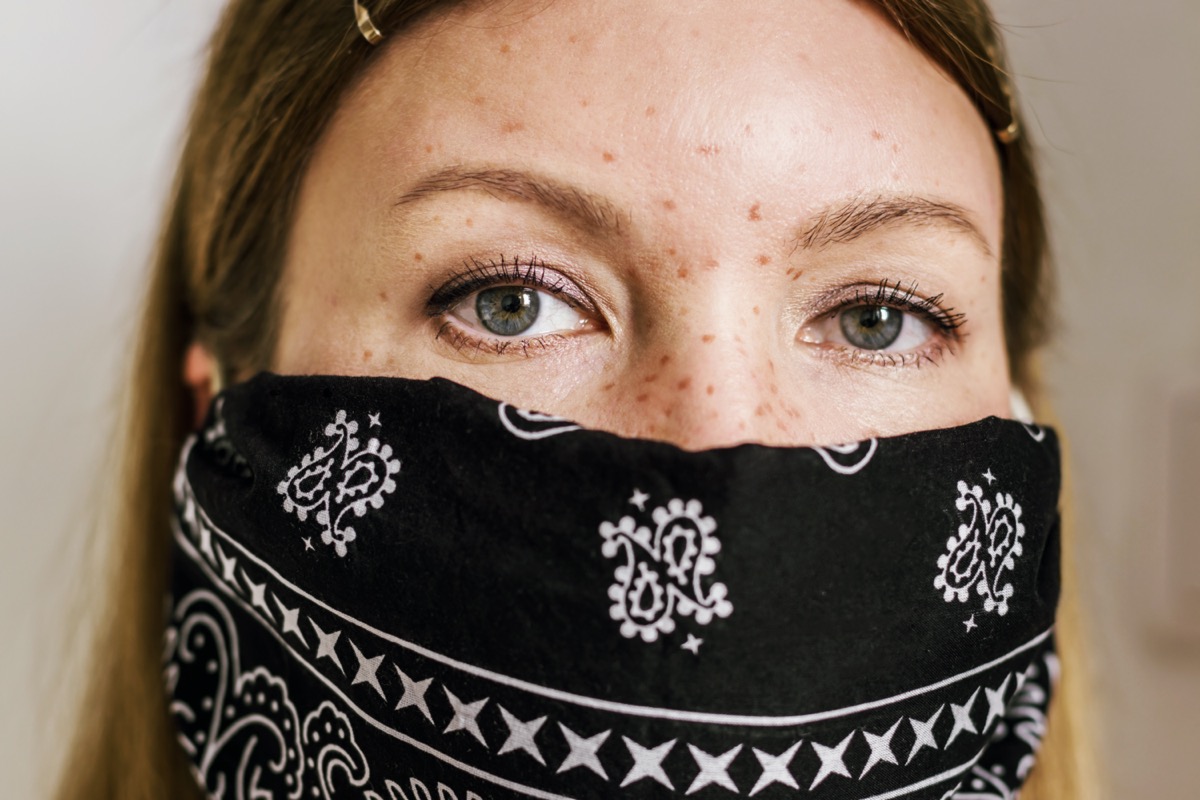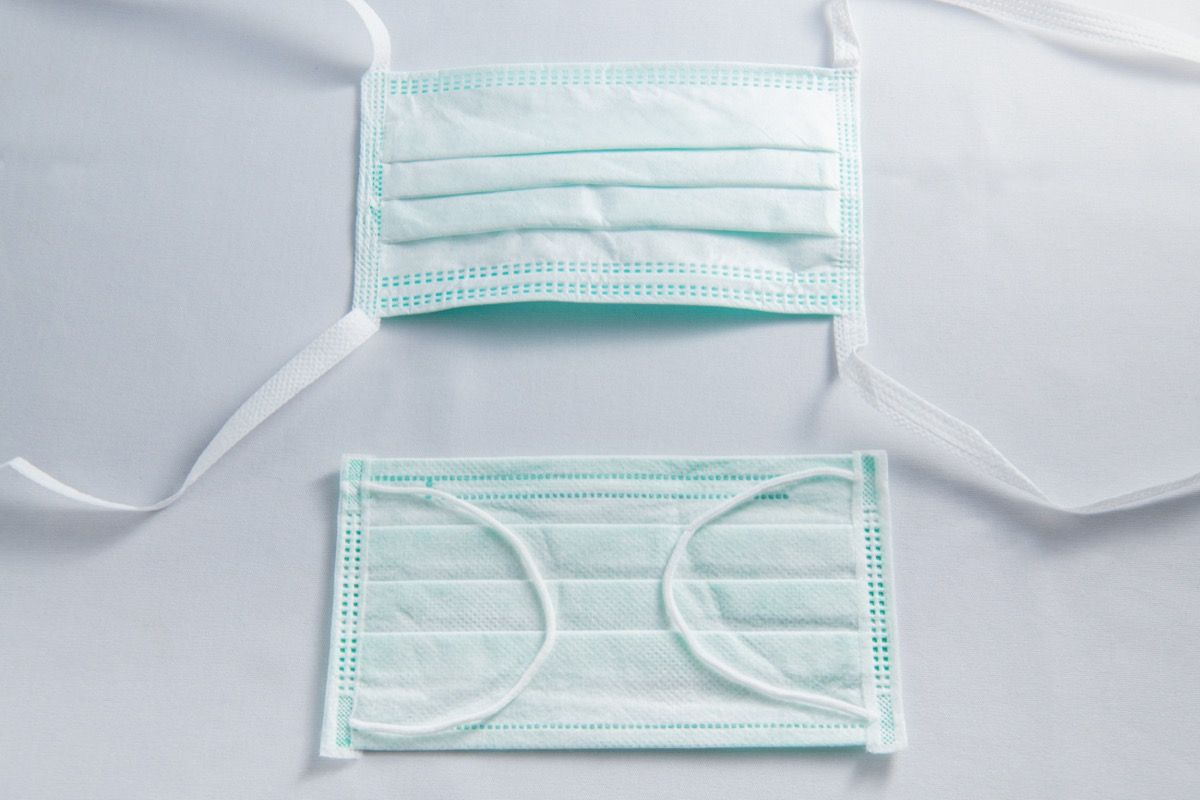According to a Dec. 2020 study published in the journal PLOS One, there’s one COVID control measure that’s proven more effective than any other when it comes to slowing the spread of the virus: closing down workplaces. While there are clear economic ramifications associated with doing so—and it’s not feasible for workers in every industry to perform their jobs remotely—the study’s authors found that workplace closings implemented at the highest applicable policy level could reduce viral spread by an estimated average of 32.5 percentage points. The research also found that restrictions on internal movement, stay-at-home requirements, public information campaigns, and school closings were the next most effective means of limiting the spread of COVID. But, when it comes to reducing the spread of COVID on a personal level, the type of mask you wear can also have a profound effect on how likely you are to get—or spread—the virus. Read on to discover which masks are most effective in terms of limiting the spread of airborne viral particles. And for insight into COVID numbers in your area, This Is How Bad the COVID Outbreak Is in Your State. Amount of airborne particles filtered out: 39.3 percent And if you’re worried about your infection risk, The CDC Just Issued This Warning About the New COVID Strain. Amount of airborne particles filtered out: 44.7 Amount of airborne particles filtered out: 49 percentae0fcc31ae342fd3a1346ebb1f342fcb And for the latest COVID news delivered straight to your inbox, sign up for our daily newsletter. Amount of airborne particles filtered out: 71.5 percent Amount of airborne particles filtered out: 98.4 percent And before you return to life as usual, This Is How Long It Takes for the Vaccine to Protect You From COVID.




